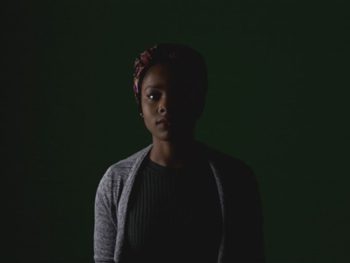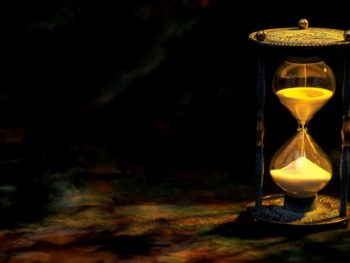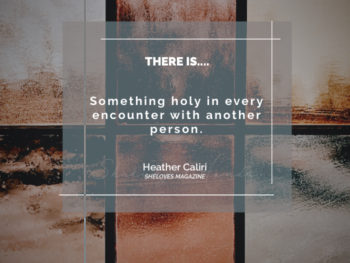
This is the third in a series of three posts about boundary-keeping in the church. Namely, how do we decide who is really “Christian”, and how do those dividing lines make people feel? I recognize that boundaries, theology, and creeds are essential for deciding what we believe, and who we are. But the practice of drawing lines is fraught. I’ve been on the wrong side–or worried about being on the wrong side–several times in my life. I think there’s a way to affirm our beliefs without making people feel like crap. And these posts are my attempt to encourage us to do just that.
In high school, my friend T led the guy’s bible study for two or three years. He was on leadership team with me, shared the gospel with friends, wore a letterman’s jacket and Christ’s call like both were light and easy.
In college and after, he did all the things good Christian leaders do: was involved in a youth fellowship. Took a leave of absence from school to help lead our old youth group when our youth pastor left. Went to Intervarsity’s Urbana mission conference. Went to seminary. Graduated, and started planting a church.
Only—
Sometime about when T was going to start preaching his own sermons he realized that he could preach a lot more about what he didn’t believe than what he did.
And maybe it has to do with what he learned in college or seminary, or maybe it was the atmosphere of spiritual abuse we both percolated in in high school, or maybe it was the truths he learned about church staff, or perhaps it was something else—
But these days, he told me, he doesn’t call himself a Christian anymore.
We were sitting in my backyard as we talked. The sky was bright blue, and the tree my family has since had to cut down was full and verdant overhead.
I felt sad for him. I don’t know exactly what I think about what qualifies people for heaven, but I will say I know that losing my faith would be a kind of death. So I was sad for his grief, at the very least. Sad because God is a presence, and then sometimes, he’s not, and that is always shattering.
And I know how close I have come to where T is, and I’m not sure what kept me on this side of the line, still able to affirm the creeds that comfort me.
I remembered too how much I looked up to his faith in high school, how much so many of us did, and I wondered if perhaps all that admiration was heavier than we realized.
I still admire him for this: he came to the brink of what he could believe, and even though his heart led him someplace he didn’t want to go he didn’t lie to himself. T was honest.
In college, I told my friend Tina how glad I was that once you became a Christian, you never ever stopped being one.
Tina face clouded. “But it happens, sometimes,” she said.
A girl my year, Ellen, who had shining brown hair and girl-next-door beauty had taken a semester or two off from school—for a mission trip?—and come back not believing.
The idea of Ellen’s not-faith was like a black hole opening in my chest. Something I’d thought was safe and untouchable was suddenly vulnerable to attack.
And I think this is how most of us react. We don’t want to believe that anyone could walk away. We hate knowing that the life raft can get punctured. We avoid imagining fingers and toes in the body of Christ getting lopped off and lost.
And to protect ourselves, we define boundaries and follow the rules of Good Christians so the line between us and them stays bright and distant, like a sunset over a body of water you know you’ll never touch.
Even recently, as T told me his story, I kept trying to undo his decision for him, telling him that he could still be a Jesus follower if he wanted to be.
Except it wasn’t true. If he doesn’t want to be a Jesus-follower, he’s not, even if Jesus is hunky-dory with it.
I’m not sure what it means to God when someone says no to beliefs. But I no longer think that line between me and them is bright and distant. No, it’s a place I’ve visited.
Here’s the thing about that country: defining exactly where us changes to them isn’t obvious. Like maps, the line is clear and well-defined in theory, but down at the dirt level it is a laughable fiction.
I used to be afraid of thinking too hard about T’s borderland. I was afraid if I learned its histories, I would be forcibly transported. I thought its people might be contagious. I was afraid the land would have a desert emptiness, where God withdrew his face.
It’s still not a land I want to take up residence in, but I realized, talking to T, that the idea of doing so doesn’t terrify me in the same way anymore. I would grieve not being a Christian, yes, but I don’t think God would turn his face away from me.
And talking to T I realized something else.
I feel more fellowship with the people in that land than I do with Christians who use creeds like yardsticks.
Maybe it’s the honesty: doing what must be done, even when it destroys the ground you’re standing on. I much prefer that to people saying the Bible is easy and self-evident.
I thought learning about the borderland would destroy my faith. But in fact, putting my toe on the line between “us” and “them” is why creeds are still possible for me.
Back when I was desperately trying to protect my borders, faith was all about defense, about keeping and maintaining and controlling. And after I accepted that I would always live next to to T’s new home country, I settled down into my patch of doubtful ground and thought, What the heck, it’s all a mystery.
Only then was I able to relax into those creeds as if they were soft places to rest.
I can still say I believe because I know, fiercely, that God has not turned his face away from my once-Christian neighbors. I believe that Jesus will still be working through T, using him, even if how that actually works makes me blink in confusion.
And perhaps I’m wrong, but I think if we all did a little less boundary-keeping, if Christians were less afraid of the “god-forsaken” country, that we might be able to keep holding the hands of the people on the other side of that real and fictitious border. And hands joined, I know that every creed we spoke aloud would be more joyous, more mysterious, and more a lavish gift of God’s grace.
Image credit: David Ludwig














 Storyteller, Question-Weaver
Storyteller, Question-Weaver
Oh, Heather. Once again, I can relate so well. Especially to your reaction to T because I have known people who just needed to know they could still be a Christian and not be (Baptist, complementarian, Reformed, straight, conservative, into worship music, *insert stereotype here*). We do a crazy job in America (and maybe other places too, I wouldn’t know) of adding on all these “If you were really a Christian…” extras.
Thanks, Jenna. Yeah, I think I was really eager to find him a place w/in Christianity. He forgave me 😉
Heather, thanks for another great post.
I have a lot of friends who were devout Christians and aren’t any longer. In some cases it was because of abuse in the church or in the family. I wrote a post called “When Abuse Leads to Cynicism” last weekend. You can find it here: http://watchtheshepherd.blogspot.com/2015/03/cynicism-faith-turned-upside-down.html
It’s a super-compassionate read, Virginia. Thank you for sharing it here. I really appreciate you speaking up about it. I hope more Christians “get” this in the way you do.
“I know that losing my faith would be a kind of death.” It really is. I know, I’ve been there. I described it in my book like going through the five stages of grief. It really is a kind of death.
I love this post. I wrote a post about “screen doors”, how people on “your side” are afraid to stand too close to “our side”, and people on “our side” get bitter with people on “your side”, and we all end us holding each other at a distance – like standing safely behind a screen door. We all need to feel safe enough in our own faith and experiences that we can comfortably sit together on that middle ground of the front porch and just share life with each other. http://www.scottandlori.com/2015/07/screen-doors.html
Thanks for stopping by my blog earlier!
What a great metaphor–screen doors seems so insubstantial, but they’re a barrier nonetheless. I’m sorry for the experience of people distancing themselves from you. I wish I could say I would do better–but would I? I think when people we love leave the faith it opens up such hard questions, like what, exactly, is holding our own faith together. I am trying to not be afraid, and to trust that I am held firmly, no matter what happens with particular beliefs. Blessings to you as you navigate the changes in your life (though perhaps these ones are old hat by now 🙂